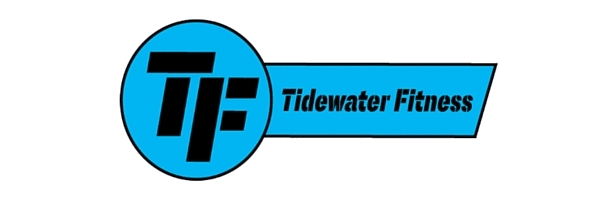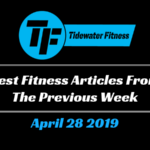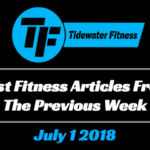Do you feel like no matter what you do you just can’t lose body fat? You exercise, you eat well but to no avail. Well in this post I am going to talk about an important macronutrient, protein. And in the end, I will share you with one thing you can start doing to get you rapid results.

Photo Credit: http://www.consumerreports.org/cro/magazine-archive/2010/july/food/protein-drinks/whats-in-your-protein-drink/index.htm
Before we get started, one of the main things you must know is that protein is made up of amino acids, which form the basis of muscle tissue. This is why it is so important whether your goal is to burn fat, gain muscle, or both.
So now that you know that, let’s get started!
Background
There are 19 main amino acids that are used for things like muscle growth and tissue repair. Of these, 9 are essential. This means that our bodies cannot naturally produce them, so we must obtain them from food sources.
There are two main types of protein sources: complete and incomplete. Complete proteins contain all the essential amino acids, while incomplete proteins do not. Complete proteins are found mainly in animal sources. However, plant proteins are generally incomplete.
If you do not have all the amino acids within the body, it could slow down the growth of new tissue. If you do not obtain protein from animal sources, it is imperative to consume a variety of protein sources so you can ensure you are getting all the amino acids you need.
Functions
I want to note this is not an exhaustive list, but covers some of the general functions related to gaining muscle mass and losing body fat.
1) One of the primary functions of protein is structural. It is responsible in the formation of each and every body tissue. This includes muscle mass. That is one of the many reasons why it is such an important component of nutrition.
For those looking to gain substantial amounts of mass you need more protein. For those looking to lose fat, you need to gain more muscle. Protein is the key here!
More muscle mass results in an increased metabolism. This allows you to burn more calories throughout the day. Again, if your goal is lower body fat, you want to be doing this.
2) Another highly important area that protein has its hand in is metabolism. Protein requires more time to digest than fat and carbohydrates. This results in two great things for you: increased caloric expenditure and it keeps you fuller for longer.
One cool thing about food is that you burn calories while digesting them. This is referred to as the thermic effect of food. The longer a food takes to digest, the more calories you will burn. Since that food takes longer to digest, you won’t be hungry as often. It’s a win-win.
3) A third function of protein is energy. If you do not consume enough carbohydrates your body will begin to break down muscle tissue to produce energy. This is the opposite of what you want.
You will lose the increased metabolic function when you breakdown muscle. Your body only cares about 1 thing: surviving. Because of this, it will always place energy production over building new tissue. You must make sure you are not only consuming a good amount of protein but some carbohydrates as well.
Sources
The following is a list of some complete and incomplete sources of protein.
Complete Incomplete
- Meat Grains
- Fish Nuts
- Poultry Rice
- Eggs Legumes
- Dairy (milk, cheese, yogurt) Vegetables
- Plant (Quinoa, Buckwheat, Chia seed)
Research Studies
Now for the fun part! Do you want to know the simple tip that can give you incredible results? Well all you have to do is increase your protein! A good starting point is between .8-1 gram per pound of bodyweight.
This may feel like a lot, but trust me it works. As I mentioned above this will allow you to build more muscle, increase your metabolism, and eat less food. Here are some studies to prove how effective it can be.
– One study compared a low-protein diet (1.1g/kg of body weight) vs. a high-protein diet (2.2g/kg of body weight) for 12 weeks. The researchers found that the high-protein group lost more body fat. Another benefit was a reduction in total and LDL cholesterol. This was not seen in the low-protein group (3).
– Another study compared two different diets: a high-protein, low-carb (41% carbs, 34% protein, and 25% fat) vs. high-carb (58% carbs, 20% protein, and 22% fat). The researchers had overweight women divided into two groups. One ate the high-protein diet and the second ate the high-carb for 12 months. At the end, those who had eaten the high-protein diet lost a little over 18lbs. of body fat and a total of 16.4% body fat, whereas, the high-carb group lost a little over 9 lbs. of body fat and a total of 10.3% body fat (4).
– This study compared two diets between men and women for weight loss: high-protein (1.6g/kg of bodyweight where all macronutrients were fairly equal) and low-protein (0.8g/kg of body weight, 15% protein, 55% carbs, 30% fat). Women in the study ate 1700 calories, while the men at 1900. At the end of a year, the both groups lost 10% of their weight. However, the high protein group lost about 15% more of their weight from body fat. This means that more muscle mass was lost in the low-protein groups (5)
Conclusion
The functions covered here are only the tip of the iceberg. Protein is extremely important as you can see. If you are looking to lose body fat fast then this is the first place to start.
Exercise is only part of the picture. Nutrition must be taken into account if you are serious about accomplishing your goals. Building muscle is the main objective. More protein in combination with a good resistance-training program will allow you to accomplish this.
Try that one little tip I gave, and I know you will see better results. The great thing about eating more protein is as you lose body fat you maintain more muscle mass. This will provide you will a lean, toned look that most people want.
If you are looking for a personal trainer in Savannah, contact me to set up a consultation.
And if you found any of this information helpful, or know of someone it could help please share with others!
References
1) Williams, M. (2005). Nutrition for health, fitness, and sport. (7th ed.). McGraw-Hill.
2) Complete vs. Incomplete Protein Sources. Builtlean.com. 2012
3) Treyzon L, et al. A controlled trial of protein enrichment of meal replacements for weight reduction with retention of lean body mass. Nutr J. 2008.
4) Griffin, H., et al. Higher protein diet for weight management in young overweight women. Diabetes Obes Metab. 2013.
5) Evans, E., Mohtahedi, M., et al. Effects of protein intake and gender on body composition changes. Nutr Metab. 2012. 9(55).






